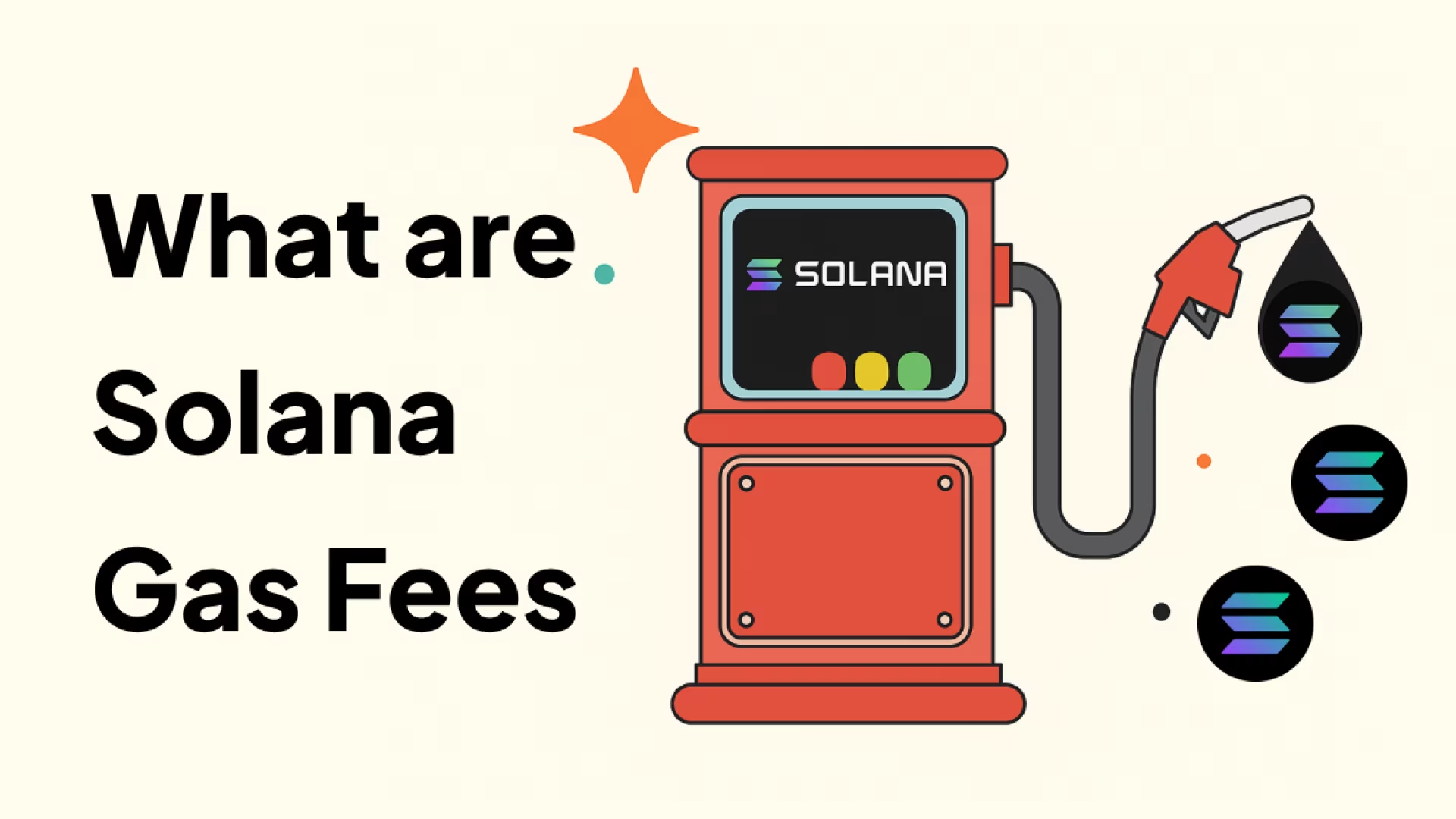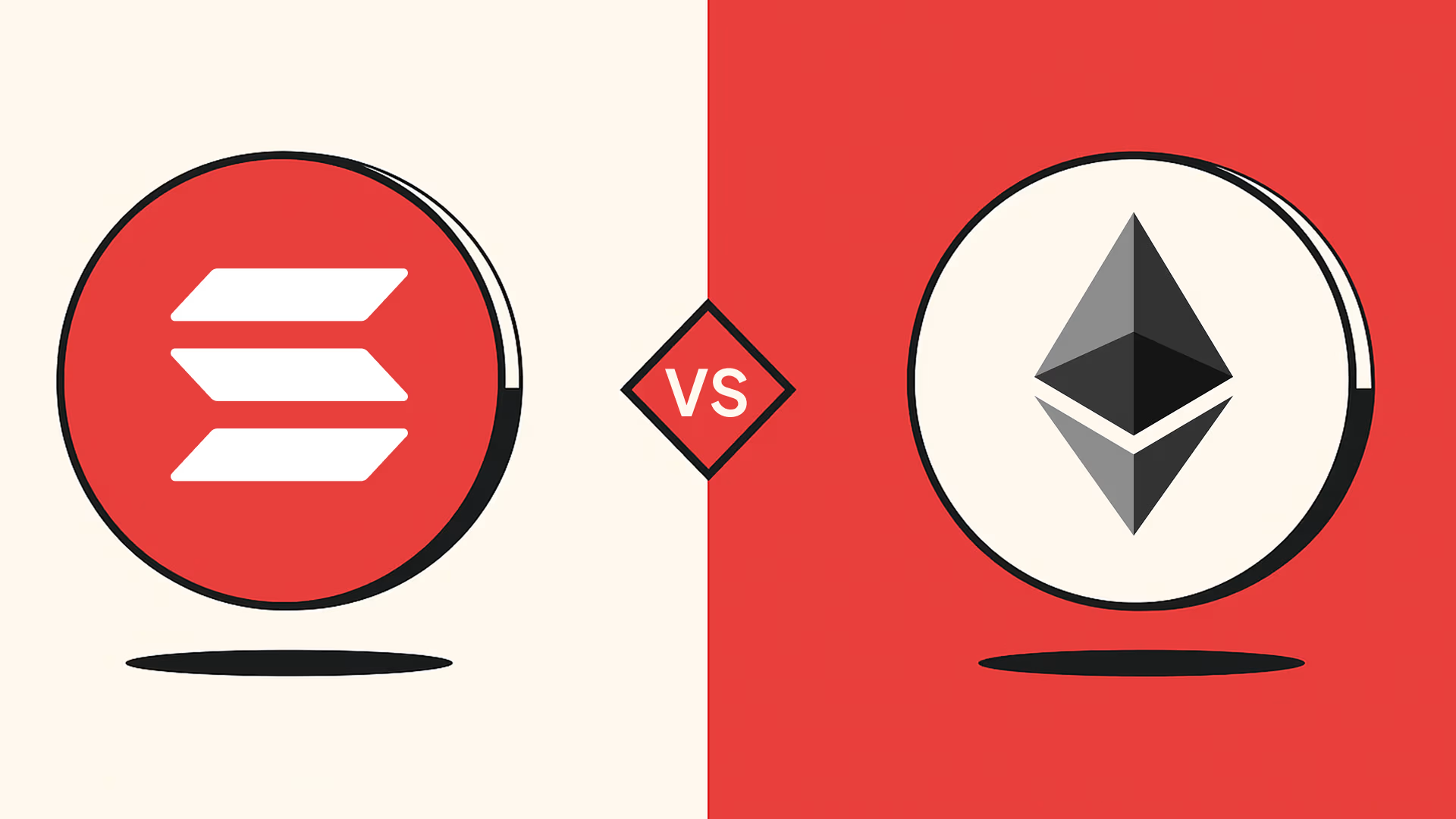What Are Solana Gas Fees and Why Are They So Cheap
Solana has built a reputation for speed and affordability, processing thousands of transactions per second at a fraction of the cost of other blockchains. One of the main reasons for this efficiency lies in its low and predictable gas fees.
In this guide, we’ll explain what Solana gas fees are, how they work, why they stay so cheap, and how they compare to other networks like Ethereum and BNB Chain.
What Are Solana Gas Fees
Solana gas fees are the small payments users make in SOL to confirm and record transactions on the Solana blockchain. Just like Ethereum’s gas fees, these charges reward validators who maintain the network and prevent spam.
What makes Solana stand out is how little users pay per transaction. The average cost is around $0.00025, or less than one-tenth of a cent. This consistency makes Solana one of the cheapest and fastest blockchains in the industry.
Each transaction fee on Solana is split into two parts:
- A portion goes to validators who process the transaction
- The rest is permanently burned, slightly reducing the total SOL supply
This structure ensures both security and long-term value stability for the network.
How Solana Gas Fees Work
Solana calculates gas fees using compute units (CUs), a measure of how much computational work a transaction requires. A simple SOL transfer may use a few hundred CUs, while complex actions such as DeFi swaps or NFT mints use more.
When you send a transaction:
- You pay a small base fee in SOL
- Validators confirm and record it on the blockchain
- Half of that fee is burned, and the other half is paid to validators
Solana’s design allows thousands of transactions to be processed in parallel. This parallel execution system, called Sealevel, is a key reason fees remain so low even when network activity increases.
Why Solana Fees Are So Low
Several core features keep Solana’s fees near zero:
- Proof of History (PoH)
Solana uses a time-stamping system that lets validators order transactions quickly without waiting for others. This reduces delay and cost. PoH creates a fast, ordered log of all events, which is then used by the PoS consensus mechanism to validate and confirm blocks.
- Parallel Processing
Unlike Ethereum’s single-threaded approach, Solana can handle many smart contracts at once, avoiding bottlenecks that drive up fees.
- High Throughput
Solana can process more than 65,000 transactions per second. Because the network rarely faces congestion, users do not compete for block space.
- Efficient Fee Market
Each app or program on Solana can define its own small “local” fee adjustments instead of raising costs across the entire network.
Together, these innovations let Solana maintain sub-cent fees even during high-demand periods such as NFT drops or trading spikes.
Average Solana Transaction Fees in 2025
Solana transaction fees remain among the lowest in crypto, even as network activity continues to grow. Thanks to its scalable design, users typically pay less than one cent per transaction, with almost no fluctuation during peak demand.
At these prices, users can perform thousands of Solana transactions for under one dollar, making it one of the most affordable and reliable blockchains in 2025.
Solana Gas Fees vs Ethereum and Other Blockchains
Compared to other major blockchains, Solana consistently offers the lowest transaction fees while maintaining fast confirmation times. Its high throughput and parallel processing mean users rarely experience congestion, unlike Ethereum, where fees can rise sharply during busy periods.
This comparison highlights why Solana is favored for high-volume applications like trading, gaming, and NFT platforms. With minimal fees and near-instant settlement, it offers one of the most efficient environments for both users and developers.
What Is a Priority Fee on Solana
A priority fee on Solana is an optional, small additional payment that users can include to speed up their transaction confirmation. This mechanism helps the network manage demand during periods of high activity, such as popular NFT mints or heavy DeFi trading.
When many users submit transactions at once, validators process those with higher total fees first. By adding a small priority fee, often just a few ten-thousandths of a dollar, users can ensure faster inclusion in the next block.
Example:
- Standard transaction: about $0.00025
- With priority fee: around $0.0004
Even with a priority tip, the total cost is still well below one cent. The feature gives users more control over transaction speed without introducing the large fee spikes common on Ethereum.
Developers and traders often use priority fees when timing is critical, such as executing trading bots, claiming airdrops, or competing in first-come-first-serve NFT launches. For most routine transfers, however, Solana’s base fee remains fast enough that adding a priority tip is unnecessary.
How to Check or Estimate Solana Gas Fees
You can check or estimate Solana gas fees using:
- Solana Explorer: Displays the exact fee paid per transaction
- Wallet apps like Backpack: Show estimated fees before confirmation
- Analytics tools: Sites such as OKX Learn or CoinCodex list average fee data over time
Because Solana’s network rarely becomes congested, these estimates are accurate and consistent.
Do Solana Fees Ever Increase
While Solana gas fees are known for their stability, they can occasionally rise slightly during short periods of intense network activity. However, these increases are usually minimal, still well under one cent and return to normal once traffic slows.
Small fee fluctuations can happen when:
- A popular NFT mint or token launch attracts heavy demand
- A single dApp’s local fee market temporarily raises fees to prioritize transactions
- Validator updates or network upgrades cause momentary congestion
Even in these cases, Solana’s unique design prevents system-wide spikes like those seen on Ethereum or Bitcoin. Because most of the network operates in parallel, congestion in one application rarely affects others.
In practice, Solana fees have remained remarkably consistent since launch, making it one of the few blockchains where users can predict transaction costs with near-total accuracy.
Why Low Fees Matter
Low fees are a key reason developers and users choose Solana. They make the network practical for both large-scale and everyday onchain activity, reducing the barriers that often limit blockchain adoption.
They enable:
- Frequent DeFi trades without worrying about cost
- Affordable NFT minting and transfers for creators and collectors
- Microtransactions in Web3 games and social platforms that rely on real-time interaction
- Cost-efficient deployment for new dApps, letting startups and developers scale faster
By keeping transaction costs near zero, Solana allows applications to reach millions of users while maintaining speed, accessibility, and long-term sustainability.
Final Thoughts
Solana gas fees represent one of the most efficient cost structures in all of blockchain. By combining Proof of History, parallel processing, and high throughput, Solana achieves a balance of speed, security, and affordability unmatched by most competitors.
Whether you are trading, minting NFTs, or building onchain applications, Solana’s ultra-low fees make it one of the most practical and scalable platforms in Web3.
Before making your next move, check the live Solana price to stay on top of market trends, and download the Backpack Solana Wallet to securely store, stake, and manage your SOL in one place.
Learn more about Backpack
Exchange | Wallet | Twitter | Discord
Disclaimer: This content is presented to you on an “as is” basis for general information and educational purposes only, without representation or warranty of any kind. It should not be construed as financial, legal or other professional advice, nor is it intended to recommend the purchase of any specific product or service. You should seek your own advice from appropriate professional advisors. Where the article is contributed by a third party contributor, please note that those views expressed belong to the third party contributor, and do not necessarily reflect those of Backpack. Please read our full disclaimer for further details. Digital asset prices can be volatile. The value of your investment may go down or up and you may not get back the amount invested. You are solely responsible for your investment decisions and Backpack is not liable for any losses you may incur. This material should not be construed as financial, legal or other professional advice.


.png)

